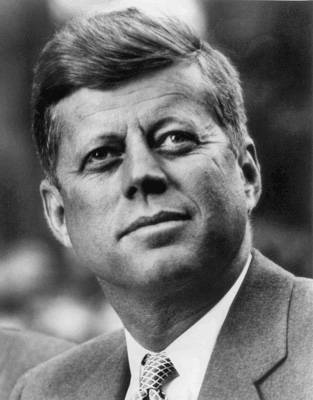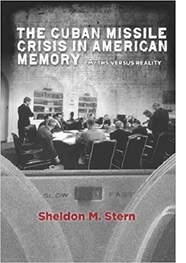There’s No Comparison Between Donald Trump and John F. Kennedy

Niall Ferguson, a senior fellow at the Hoover Institution (Stanford University) and the Center for European Studies (Harvard University) has argued, in two recent Boston Globe columns (July 17 and August 14, 2017) that “Donald Trump and John F. Kennedy are More Similar Than You Think”:
Trump is not handling this [North Korea] crisis much differently from the way John F. Kennedy handled the Cuban Missile Crisis. JFK also talked tough. At the same time, he applied diplomatic and military pressure, showing himself willing to take the world to the brink of war if the other side did not back down. That is pretty much what Trump is doing.
However, the now-declassified missile crisis tape recordings irrefutably demonstrate that JFK persistently worked to prevent taking the world to the brink of nuclear war. In fact, despite often harsh and near-unanimous opposition from his closest advisers, the Joint Chiefs of Staff and the bipartisan leaders of Congress, President Kennedy:
 • refused
to mine international waters around Cuba because of the danger to
foreign, especially Soviet, ships and submarines
• refused
to mine international waters around Cuba because of the danger to
foreign, especially Soviet, ships and submarines
• refused to provoke the USSR by including a declaration of war on Cuba in the announcement of the naval quarantine
• refused to extend the quarantine to Soviet aircraft flying to Cuba because stopping a plane might require shooting it down
• refused to further escalate tensions in Berlin by rebuffing Soviet demands to inspect US trucks entering East Germany on their way to West Berlin
• refused to seize a Soviet ship that had turned around to avoid challenging the naval quarantine
• refused to enforce the quarantine by attacking Soviet submarines in Cuban waters with conventional depth charges (JFK did reluctantly approve the use of so-called “practice” depth charges only after being assured—erroneously as it turned out—by the chairman of the Joint Chiefs and secretary of defense that they would not damage the submarines)
• refused to arm US photo reconnaissance planes flying over Cuba
• refused to return Cuban or Russian ground fire on the U-2s
• refused to initiate night surveillance over Cuba using flares because night flares were usually deployed as the prelude to an attack
• refused to launch air attacks on Soviet surface-to-air missile sites even after an unarmed U-2 plane was shot down and the pilot killed
When Kennedy met with the Joint Chiefs, he argued that the USSR was already capable of inflicting 80-100 million casualties in the US even without the missiles in Cuba: “You’re talking about the destruction of a country!” He insisted that attacking the missile sites was far too dangerous since several ICBM launchers were already operational. He openly expressed sympathy for the position of the NATO allies that the US was obsessed with Cuba and that an attack on that island nation would be an act of madness. “That’s just one of the difficulties that we live with in life,” he reasoned, “like you live with the Soviet Union and China.”
Kennedy made parallel arguments to the leaders of Congress, several of whom demanded an immediate invasion of Cuba regardless of the Soviet nuclear threat. “If we go into, Cuba,” he warned, “we have to all realize that we are taking a chance that these missiles, which are ready to fire, won’t be fired. So is that really a gamble we should take? … if we’re talking about nuclear war, then escalation ought to be with at least with some degree of control … [because the missiles in Cuba] could blow up fifteen cities in the United States.”
If Donald Trump is capable of this kind of responsible, dispassionate and thoughtful leadership, the world is still waiting to see it. Unless and until that happens, equating the crisis leadership of Kennedy and Trump is profoundly disingenuous and contrary to the incontrovertible historical evidence.